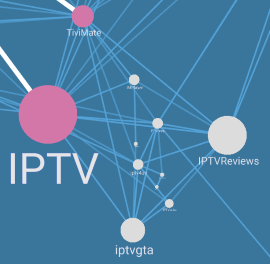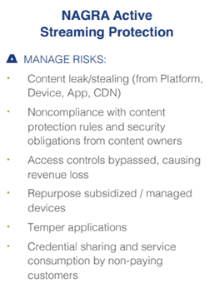 Three-ish plus decades ago, telecoms companies were best known for installing analog telephones in people’s homes and sending paper bills through the mail to be paid by check.
Three-ish plus decades ago, telecoms companies were best known for installing analog telephones in people’s homes and sending paper bills through the mail to be paid by check.
Many later branched out into the lucrative mobile phone market, but as operators of wired telephone networks, major phone companies all over the world would soon become the gatekeepers of a brave new world – the internet. While that was exciting for a while, with little opportunity for added value, selling a commodity product like bandwidth can be a race to the bottom.
By providing bandwidth and profiting from the content that consumes lots of it, telecom companies today are able to add value to their base products and generate much more profit. In 2024, telephone company Compañía Telefónica Nacional de España will celebrate its 100th birthday. Under its modern-day branding, Telefónica is a telecoms and media empire with assets worth around $110 billion, significant interests in the pay-TV market, and lots of valuable content to protect from pirates.
Telefónica and NAGRA Boost Partnership
Anti-piracy company NAGRA has also undergone a transformation. From the 1950s onwards, NAGRA produced high-end portable tape-recording devices but is better known for the video scrambling system Nagravision, which aimed to prevent unauthorized reception of pay-TV signals and any subsequent recording. In that sense, NAGRA hasn’t changed its core market but thanks to the internet, content protection now faces significant challenges from increasingly sophisticated pirates.
This week Telefónica and NAGRA announced an expansion of their existing relationship as the former works to counter the threat from pirate IPTV services. As it expands its anti-piracy operations in Latin America, Telefónica said its fraud prevention team sought access to advanced anti-piracy technologies and case file histories. While Telefónica has its own intelligence sources, a solution offered by NAGRA proved attractive.
Pirate IPTV: Identify and Disrupt
 A statement from Telefónica says that NAGRA’s product provides “innovative ways to identify, monitor and display pirate activity.” The system is supported by AI-powered analytics which will alert Telefónica to “illicit patterns of activity.”
A statement from Telefónica says that NAGRA’s product provides “innovative ways to identify, monitor and display pirate activity.” The system is supported by AI-powered analytics which will alert Telefónica to “illicit patterns of activity.”
Madrid-based Delia Álvarez, manager of Global Fraud Prevention at Telefónica, says the relationship with NAGRA will provide vital intelligence as it seeks to identify and disrupt global piracy networks.
“Content piracy is a major concern with a direct impact on our performance. To increase our effectiveness in this ongoing battle, we chose to expand our existing relationship with NAGRA,” Álvarez says.
“They have a proven, global capacity to identify and remediate pirate activity. Their threat intelligence provides further value to our Fraud Prevention teams as they seek to identify and disrupt large-scale piracy networks.”
NAGRA’s Active Streaming Protection framework (pdf) is already deployed at Telefónica and will supplement other content protection mechanisms such as watermarking.
“We are proud to extend our partnership with Telefónica to now include more anti-piracy services.” said Pascal Metral, VP Anti-Piracy Intelligence, Investigation & Litigation, NAGRA. “Helping our customers tackle one of the biggest threats to both their revenues and their significant investments in content is our core focus and we look forward to our services unseating pirates across the Telefónica ecosystem.”
Telefónica Developers
Those with an interest in software development will find Telefónica’s official source code platform on GitHub with an impressive 261 repositories to trawl for interesting gems.
These include GoSwiftyM3U8, a framework for parsing and handling .m3u8 playlist files that also happen to be popular among IPTV pirates. There are many reasons why the company might be interested in App Logger for Android but seemingly fewer uses for its fork of CLA-Videodownloader, a web/REST interface for downloading YouTube videos onto a server.
Telefónica’s developers are also the creators of HomePwn, billed as a Swiss Army Knife for Pentesting of IoT Devices. VpnHood, meanwhile, is an “undetectable VPN for ordinary users and experts” that’s able to bypass firewalls and circumvent Deep Packet Inspection.
Finally, a big thanks to the ElevenPaths team at Telefonica Tech for FOCA (Fingerprinting Organizations with Collected Archives), a tool that regularly makes document metadata a more interesting read than the documents themselves.





